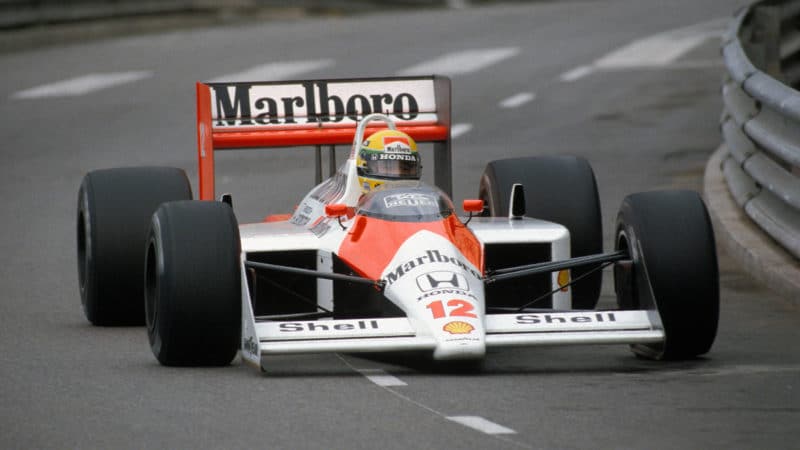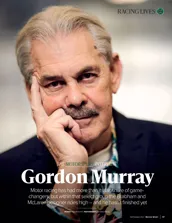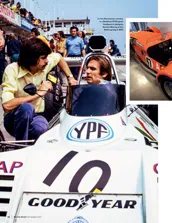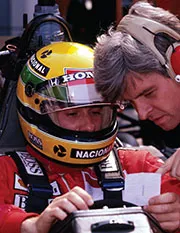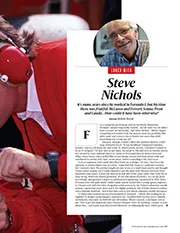“The MP4/4 was not designed by Steve Nichols, I can promise you that. I put him in charge of the monocoque and the front-end while Dave North and I did the rear end, the aerodynamics, and a radical new dry-sump three-shaft gearbox working with Pete Weismann. It was a pretty radical motor car.
“I’d taken the Brabham BT55 drawings with me to McLaren so the basic concept of the MP4/4 was the BT55, with the lay-down driving position, and a far better rear end, with the Honda V6, and then I also designed new front suspension, using a pull rod with a roller and track system. If you look at the two cars together, the BT55 and the MP4/4, you’ll see the design is almost identical.”
McLaren engineer Neil Oatley corroborates Murray’s argument in the latter’s book One Formula, indicating the crossover between the two projects.
“There were certainly layout drawings of the Brabham BT55 around to use as a basis but I know Steve was a big fan, as was Gordon, of the Lotus 25, which had a quite similar seating position,” Oatley says. “The McLaren at the time had push-rod suspension front and rear, which had carried forward to MP4/3. The Brabham had used pull-rod suspension front and rear, which was the style used with the MP4/4 when it appeared.”
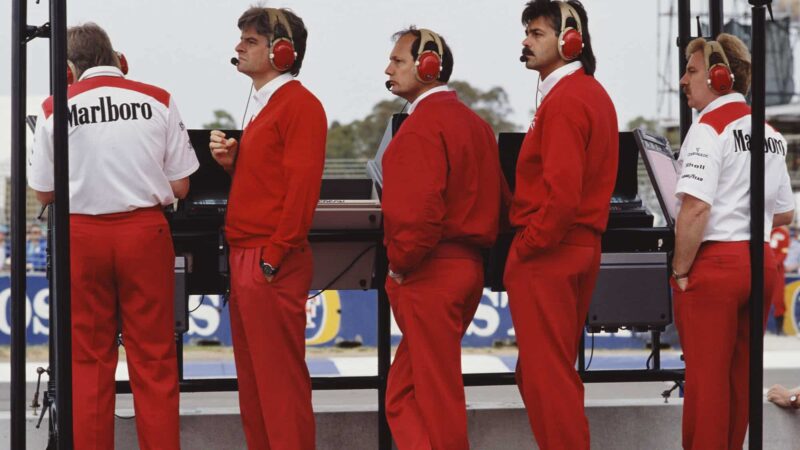
Nichols (second left) and Murray (second right) don’t see eye to eye on the matter
Pascal Rondeau/Getty Images
However, Nichols’s view on the matter is almost completely opposing to Murray’s. The South African had moved over to McLaren at the end of 1986 to replace Ferrari-bound John Barnard, the former moving into a technical director role at Woking rather than a design role, which was filled – at least in name – by engineers Oatley, David North and Nichols. Nichols has said that Murray fulfilled a “figurehead” role, whilst those below him in the hierarchy were left to get on with designing the car.
Motor Sport has contacted both Nichols and McLaren for comment on the matter, without reply, although Nichols does detail his side of the story on his website.
“To overcome any confusion, Gordon sent around a memo, in which he said that I had total design responsibility for the MP4/4 and that Neil Oatley would be looking at the car after that, the MP4/5, a naturally aspirated car, requiring a longer gestation period,” he says.
